Filter by
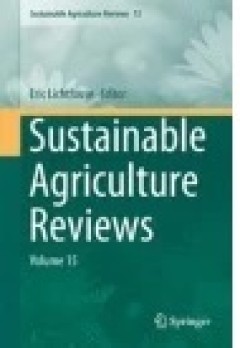
Sustainable Agriculture Reviews
Sustainable agriculture is a rapidly growing field aiming at producing food and energy in a sustainable way for humans and their children. Sustainable agriculture is a discipline that addresses current issues such as climate change, increasing food and fuel prices, poor-nation starvation, rich-nation obesity, water pollution, soil erosion, fertility loss, pest control, and biodiversity depletio…
- Edition
- -
- ISBN/ISSN
- 978-3-319-16988-0
- Collation
- VI, 214
- Series Title
- Sustainable Agriculture Reviews
- Call Number
- -
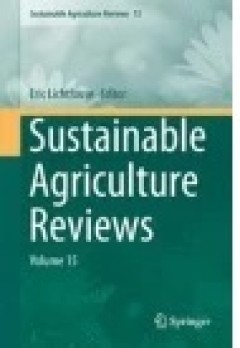
Sustainable Agriculture Reviews
Sustainable agriculture is a rapidly growing field aiming at producing food and energy in a sustainable way for humans and their children. Sustainable agriculture is a discipline that addresses current issues such as climate change, increasing food and fuel prices, poor-nation starvation, rich-nation obesity, water pollution, soil erosion, fertility loss, pest control and biodiversity depletion…
- Edition
- Volume 17
- ISBN/ISSN
- 978-3-319-16742-8
- Collation
- VI, 366
- Series Title
- Sustainable Agriculture Reviews
- Call Number
- -
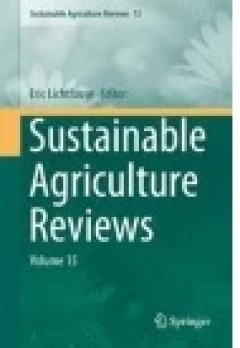
Sustainable Agriculture Reviews
Sustainable agriculture is a rapidly growing field aiming at producing food and energy in a sustainable way for humans and their children. It is a discipline that addresses current issues: climate change, increasing food and fuel prices, poor-nation starvation, rich-nation obesity, water pollution, soil erosion, fertility loss, pest control and biodiversity depletion. This series gathers review…
- Edition
- -
- ISBN/ISSN
- 978-3-319-09132-7
- Collation
- IX, 407
- Series Title
- Sustainable Agriculture Reviews
- Call Number
- -

Invertebrate Bacteriology: Function, Evolution and Biological Ties
This compendium reviews different processes acting on bacterial groups that evolved one or more relationships with members of the most important invertebrate Phyla. Starting from principles of basic bacteriology the book provides data on bacteria interactions with pests, animal or human diseases. Being present in all environments, from deep see to crops, animals or plants, invertebrates represe…
- Edition
- -
- ISBN/ISSN
- 978-94-024-0884-3
- Collation
- -
- Series Title
- -
- Call Number
- -
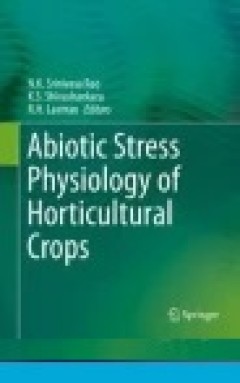
Abiotic Stress Physiology of Horticultural Crops
This book brings together recent advances in the area of abiotic stress tolerance in various vegetables, fruit crops, plantation crops and tuber crops. The main challenges to improving the productivity of horticultural crops are the different types of abiotic stresses generally caused by climate change at the regional and global level. Heat, drought, cold and salinity are the major abiotic stre…
- Edition
- Ed. 1
- ISBN/ISSN
- 978-81-322-2725-0
- Collation
- XIV, 368
- Series Title
- -
- Call Number
- 581 ABI a
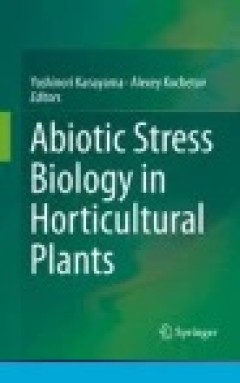
Abiotic Stress Biology in Horticultural Plants
The purpose of this publication is to elucidate the biological aspect of the abiotic stress response from the field to the molecular level in horticultural plants. This book is unique in that it concerns the basic aspect of abiotic stress biology and research progress at the molecular level in model plants or major field crops, as it focuses mainly on the abiotic stress response in existing hor…
- Edition
- Ed. 1
- ISBN/ISSN
- 978-4-431-55251-2
- Collation
- VIII, 220
- Series Title
- -
- Call Number
- 581 ABI a
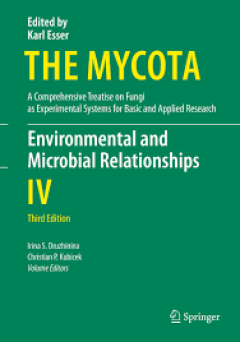
Environmental and Microbial Relationships
This volume provides insights into current research on fungal populations, communities and their interactions with other organisms. It focuses on fungal responses to the physical environment; interactions with bacteria, other fungi, invertebrates and plants; the role of fungi in ecosystem processes such as decomposition and nutrient cycling; and aspects of biogeography and conservation. Since …
- Edition
- -
- ISBN/ISSN
- 978-3-319-29532-9
- Collation
- 15 b/w illustrations, 25 illustrations in colour
- Series Title
- -
- Call Number
- -
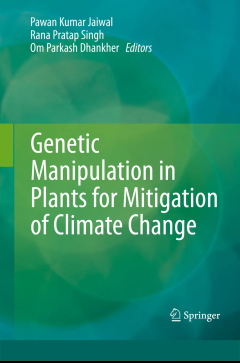
Genetic Manipulation in Plants for Mitigation of Climate Change
This book presents a detailed overview and critical evaluation of the state of the art and latest approaches in genetic manipulation studies on plants to mitigate the impact of climate change on growth and productivity. Each chapter has been written by experts in plant-stress biology and highlights the involvement of a variety of genes/pathways and their regulation in abiotic stress, recent adv…
- Edition
- -
- ISBN/ISSN
- 978-81-322-2660-4
- Collation
- 3 b/w illustrations, 15 illustrations in colour
- Series Title
- -
- Call Number
- 630 Gen
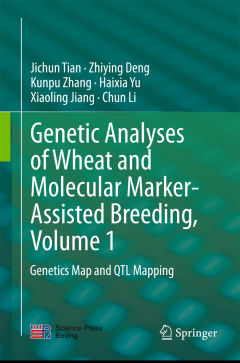
Genetic Analyses of Wheat and Molecular Marker-Assisted Breeding, Volume 1
The book mainly describes the QTL mappings and efficacy analyses that are associated with wheat productivity, quality, physiology and various stress resistances and provides summaries of results from studies conducted both at home and abroad. It presents comparable data and analyses, helping readers to arrive at a more comprehensive understanding of the latest development in this field. The boo…
- Edition
- -
- ISBN/ISSN
- 978-94-017-7388-1
- Collation
- -
- Series Title
- -
- Call Number
- 630 TJA g
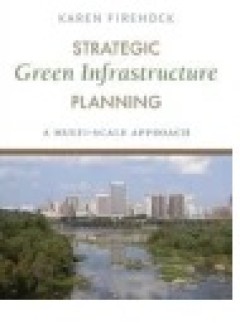
Strategic Green Infrastructure Planning
A practical guide to creating effective plans and then implementing them, Strategic Green Infrastructure Planning presents a six-step process developed by the Green Infrastructure Center in Charlottesville, Virginia. Each step, from setting goals to implementing opportunities, can be applied to a variety of scenarios, customizable to the reader's target geographical location. Chapters draw on d…
- Edition
- -
- ISBN/ISSN
- 978-1-61091-693-6
- Collation
- -
- Series Title
- -
- Call Number
- -
 Computer Science, Information & General Works
Computer Science, Information & General Works  Philosophy & Psychology
Philosophy & Psychology  Religion
Religion  Social Sciences
Social Sciences  Language
Language  Pure Science
Pure Science  Applied Sciences
Applied Sciences  Art & Recreation
Art & Recreation  Literature
Literature  History & Geography
History & Geography